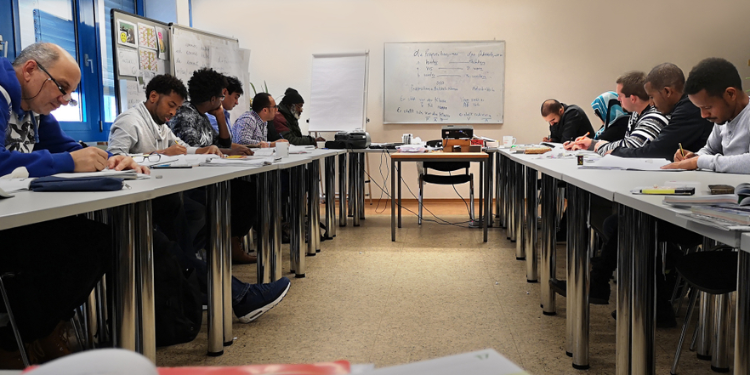
Denmark has just launched a six-month programme to help expatriates integrate. Indeed, leaving everything behind to settle in an entirely new country is never an easy thing to do. Just like Denmark, some countries seek to make things a little easier on expats by providing them with integration courses. Here are the countries that do and the different forms these programs take.
Not all countries have integration programs or courses for expats and those that do, differ in their conceptualization and application of it. For example, integration programs could be basic or advanced, guided by different laws, and differ in content, scope, duration, and target groups. Emphasis of programs could be on social/civic, political, cultural, economic, or religious integration. What is clear is that integration programs are mostly applied in developed countries and there is a consensus in their objectives namely to preserve their particular culture (inclusive of language), economic and social lifestyle and political context and to ensure economic participation of expatriates towards this objective. The European Union is taking a leadership role to design a regional approach to integration but to date there is no consensual model. A new trend noticeable in Europe, is the movement towards mandatory programs for expats, primarily to learn the native languages. Another accompanying trend is that immigration and integration policies are becoming intertwined.
In general, integration programs are less stringent and more user-friendly for expatriates who are temporary residents, highly skilled, and deemed necessary for national interest. In many cases they are even exempted from mandatory programs. On the other hand, integration programs are very strict, of long duration, and challenging to those who permanently immigrate to a new country.
Since the late 1990s the Netherlands, Austria, Denmark, France, Germany, and the United Kingdom among others introduced obligatory civic integration courses and tests for newcomers. Today, these courses could last anything between 12 and 24 months and mostly target unskilled expat workers and refugees. In Canada and European countries subjects like anti-discrimination, diversity management, and intercultural dialogue are integrated into programs.
Examples of Integration Programs
In the context of the above general parameters the following are examples of integration programs with specific requirements.
Denmark and Norway
Denmark's integration policy is being developed since 2000 and predominantly focuses on new refugees and immigrants on the basis of family reunification or family formation. Over a period of three years, these newcomers are exposed to education and learning opportunities to learn Danish and to prepare for the labor market. Expats who come to Denmark for the purpose of employment must learn Danish on one of three levels varying between very basic to advanced. After a certain level has been determined, any number of exam-assessed language modules up to six may be taken over three years. Norway has an integration and inclusion policy similar to that of Denmark. It has an introduction program comprising 250 compulsory hours of Norwegian language training and additional social studies classes as a requirement for permanent residency. These classes are often free based on individual circumstances.
Germany
Its Immigration Act of 2005 includes a mandatory language course for refugees, asylum seekers, and foreigners in general. The language course is 600 hours and a basic orientation course is another 60 hours. These are followed by an exam. Placement tests are done prior to joining a course to determine the level of participation. Those that speak German adequately or have attended a comparable education program, have good reasons not to attend and/or are involved in a specific job are exempted. There are course fees which in specific situations will be reimbursed or exempted.
Netherlands and Belgium
Netherlands have what they call a Civic Integration Course which is compulsory for immigrants since 2007. It entails passing a language exam as well as an exam called "Knowledge of Dutch Society". Failure in either of the exams will result in a penalty. Highly skilled expats and those with a residence permit based on employment, as well as their families, are exempted from the course. However, should they decide to become permanent residents they will have to do the course and exam. Similarly, Belgium has a similar Civic Integration Path that includes courses about life, work, norms, and values in Belgium and the Dutch language. It is compulsory for most foreigners but expats with a temporary residence permit are exempted.
Switzerland
On 1 January 2019 the revised Swiss Federal Act on Foreign Nationals and Integration (FNIA) was enacted. Accordingly, all expats need to prove or be assessed and certified for a particular level of proficiency in a national language for each of the different types of work or resident visas issued.
Australia
There is no formal integration program in Australia; rather, an integration policy executed by the Integrated Humanitarian Settlement Strategy (IHSS), aimed at assisting expats to become part of Australian society. Different categories of foreigners receive different support. Basic support over a period of twelve months is provided to skilled and qualified expatriates found suitable for the Australian labor market. However, for temporary residence visas and for permanent residence status, a “Values Statement” needs to be signed that implies acquired knowledge about Australian values. To apply for Australian citizenship, applicants must meet a residence requirement (generally 4 years), be of good character, and pass the ‘Australian Citizenship Test'.
Canada
Canada approaches integration as a life-long process enabling expatriates to become fully integrated in Canada. In 2019 its Immigration, Refugees, and Citizenship Canada (IRCC) has selected 824 projects that will facilitate the settlement of expats. Through the IRCC's Settlement Program, labor migrants including skilled workers and business immigrants, legal refugees, and migrants wanting to permanently settle in the country can receive the following: compulsory language training, assistance in finding a job, and help in connecting with established immigrants and Canadians.



















